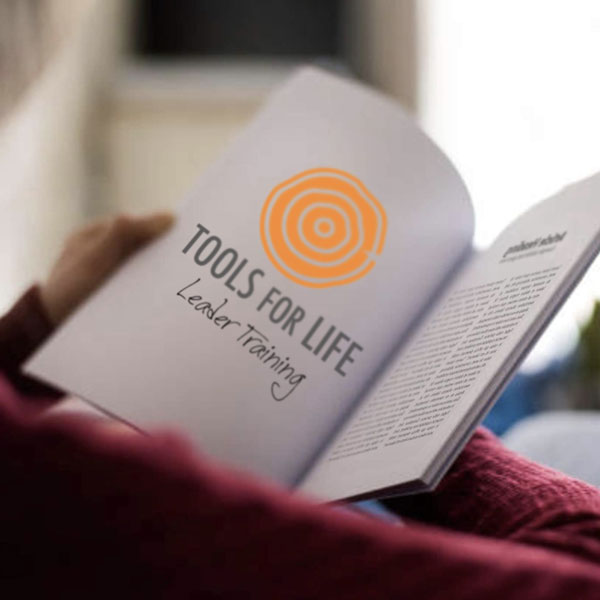
The Heart-Centred Leadership Revolution
June 1, 2021
Putting the Heart-Centred Leadership into Practice
In my previous two posts, I talked about the problems of head-centred leadership and the benefits of heart-centred leadership that incorporates the positive qualities of the three main centres: head, heart and belly.
However, it’s one thing to talk about those qualities and ideas, and a very different thing to understand how you can use those qualities in practical ways in your job, relationship and day-to-day activities. That’s what I’ll explore with you in this post.
Here are 14 ways you can manifest heart-centred leadership:
1. Do the shadow work
As I mentioned in my last post, heart-centred leadership begins with inner work. The more you’re able to really face and process your own issues, traumas and problem areas that are holding you back from connecting to the heart, the more impactful your leadership will become. You cannot skip over this part. There is no way around it. Do the inner work and your outer work will reflect it.
2. Respect other’s boundaries
When you’re able to open yourself to heart-centred leading and connect to the heart, there can be a tendency for you to expect others to do the same. That’s because it’s been so positive and empowering for you that you want others to feel the same, but not everyone is ready to take a quantum leap yet. Just as you did your inner work at your own pace, you can’t expect someone to just spontaneously open up when they’re still stuck in the head-centred way of leading and being led. Whether it’s a team member, a partner or a client, be patient and respect their boundaries. You can show the way, offer suggestions, give them exercises and coach them, but in the end, they are the ones who need to decide when they are ready to open up. Being accepting of others and respecting their boundaries builds trust which is a hallmark of heart-centred leadership.
3. Feel good enough
Just as people you are leading or working with might have some hang-ups and feel unable to open completely or fully trust, you will likely run up against that same feeling more than once. The inner work is constant, and it comes in layers- you peel one off and another layer is underneath. You might get frustrated and feel like you’re not making progress or you’re not doing enough or you’re not offering enough. Feel good enough. This is a really belly-centred skill. Take a deep breath into your lower belly, connect with your belly centre and tell yourself that you are enough. When you can let go of the insecurity and trust in your innate value, you have a solid base to work from. If you’re constantly doubting and wavering, it’s hard to take the next step forward or hold space for others.

4. Don’t expect perfection from yourself or others
We all know the expression ‘Nobody is perfect’ and yet it can be so hard for us to believe it, especially about ourselves. We are all constantly holding ourselves and other people to impossible standards. Those standards can be anything: courage, success, beauty, intelligence or what have you. When we realize that everyone we know, including ourselves, are doing the best we can with the information and abilities we have, then we can be more accepting, more forgiving and more appreciative. It is a huge relief when you let yourself off the hook of perfectionism and allow yourself to make mistakes, to be flawed and to get things wrong. It’s in that space of accepting that you will be wrong sometimes that your creativity and self-esteem actually flourish. Accepting that we are all perfectly imperfect is a powerful jumping-off point.
5. Take risks
If you’re too afraid to make mistakes, you won’t take risks. When you take a risk, when you dare to express something, it’s one of the moments when you are connecting to the head, heart and belly centres in the deepest way. When you take a risk, you are saying ‘I am enough, I forgive myself if this is a mistake and my ideas are valid’. Likewise, you also forgive and accept others and value their ideas when they make mistakes. The more you allow yourself to make mistakes, the more resilience you build so you can bounce back more quickly the next time.
6. Be open to feedback and get out of singlemindedness
When someone approaches you with some feedback, how do you normally react? Do you feel defensive or resentful? Does it bring your self-esteem down? Or do you welcome it and feel grateful for another point of view? When you receive feedback, it’s important to remember that someone is sharing their own perspective. It’s not a criticism of you as a person and there’s no need to take anything personally. Ever. However, if you want to expand your knowledge and abilities, it’s important to listen to what someone else has to offer you and receive it as a gift. Again, the more connected you can be to the three centres, the more likely you’ll be able to receive feedback as a gift and make positive use of it. Getting out of singlemindedness is an essential step towards personal growth. Ask yourself: What do you need to work on in order to be able to embrace feedback?
7. Be vulnerable and own your wounds so you can share your wounds
Nothing can be scarier to us than vulnerability, exposing the parts that we’re ashamed of and try to hide. That is particularly true if we don’t actually accept who we are. When we judge ourselves and our past actions or present situations, we often close ourselves off from other people in order not to feel judged by them as well. But when we are able to own our stories and honor what we have gone through, then those stories become fodder for the growth of someone else. When we learn about the flaws and insecurities and difficult paths of the people we admire, we feel heartened that we can tread our own paths and find healing.
8. Don’t engage in gossip… including about yourself
Gossip is a form of judgement and creates an environment of distrust where the lines of communication are damaged. When we gossip about others, we are saying that person isn’t worthy of dialogue. Sometimes, we may even find ourselves gossiping about ourselves. We might criticize ourselves and say we didn’t do a good job or we’re a loser or difficult to work with or to love, whatever the case may be. In all of these scenarios, bringing heart-centred communication in the form of respect, compassion and inclusion would help repair the channels of communication and create a space of sharing and authenticity.
9. Silence the inner critic
The inner critic is like the negative voice that every time you want to be courageous, daring, creative or take a risk, tells you that you are stupid, crazy, unqualified and that you will fail. We all have the inner critic. Even the most incredibly successful people in all areas of profession have an inner critic who they have had to overcome in order to manifest their talents, visions and dreams. Silencing the inner critic means trusting in our worth and the worth of our contributions. The more we’re able to silence the inner critic, the more fluid we’re able to be in our work, relationships and goals because we’re not constantly battling our self-doubt. Likewise, when we silence our own inner critic, we’re able to be more compassionate and less judgmental of others.

10. Others can feel when you’re solid in yourself
If you are plagued by the inner critic, haven’t done the shadow work, engage in gossip, can’t listen to feedback, are afraid to take risks and are busy hiding your wounds, people will be able to tell. We think we are building walls around us to hide our “flaws,” but mostly, we are all transparent as can be. When we’ve done the work and are no longer doubting or hiding, then people can feel that we are connected to our centres and that they can trust us.
11. Don’t be afraid to be still, to pause, to feel
A lot of us feel anxiety about getting things done, whether it’s starting or finishing a project or fixing a problem in a relationship. Many times, when anxiety arises, the best thing to do is to stay still. Let things settle. Take deep breaths. Turn off your phone. Go for a walk or find a place to sit in silence. In these spaces, we can drop more deeply into ourselves and give ourselves the opportunity to simply feel. In that space, we can connect to our presence, our compassion and our wisdom. Even if we don’t find a solution in that moment, we have given ourselves the space to observe our thoughts and feelings and haven’t taken rash decisions based on fear.
12. Taking responsibility vs. victimization
Do you see yourself as a victim of life or the creator of your destiny? There’s a big difference between these two outlooks. Everyone has challenges in life and in some cases, we can go through experiences where we have very little power over our circumstances. But we do have the power of choosing our perspective. The more we’re able to take responsibility for our situations and the choices we make, the greater a chance we have at changing those circumstances. The more we feel we are a victim, the less the odds are that we will be able to change things. Responsibility doesn’t mean saying, “I’m to blame.” It means you’re empowered to change things. What do you want to change about your life, career, relationship, self-image, etc.? What do you need to own about your choices, habits and communication in order to change those things?
13. Be authentic about sharing your challenges and needs
Along with responsibility comes authenticity. As you learn to take more responsibility for your actions and thoughts, you also start to become a better communicator. Instead of expecting someone else to guess what you’re feeling or assume that they’re doing something to upset you on purpose, you can express yourself and put your feelings out there. When we hold back our emotions and needs, we not only tell ourselves that our needs aren’t important enough to be expressed, but we’re also robbing the other person of the opportunity to connect with us and understand us better. The more we can be open and honest about where we’re coming from, the more likely our needs will be met.
14. Don’t compare or compete, but collaborate
Most of us come from a head-centred leadership space where we were taught to compare ourselves to others and to compete with others. In heart-centred leadership, that desire to compare and compete is replaced by a spirit of collaboration. By valuing someone else’s knowledge and skills, you can learn from them and increase your own knowledge and skills through them. Likewise, you can nurture their growth by sharing your experience. Whether it’s a work relationship or a personal relationship, in this kind of exchange, it’s a win-win.
As you journey towards heart-centred leadership and begin to integrate these important skills into your job, your home and your day-to-day activities, you’ll start to feel a greater sense of connection with your own feelings and also with others. This journey requires hard work, courage, vulnerability, openness and authenticity, which in themselves are their own rewards. As our values as a society change and the world prepares for a new dynamic that prizes these qualities, you need to ask yourself the question: Are you ready to join the heart-centred leadership revolution?

If heart-centred leadership is something that you would like to learn more about, check out the Tools for Life Leader Training.
Share this post on:
MORE BLOG POSTS
-
October 5, 2021
-
June 1, 2021
-
May 1, 2021
-
April 10, 2021
-
January 19, 2021
WORKSHOPS AND RETREATS
DOWNLOAD GUIDED MEDITATIONS
WORKSHOP TESTIMONIALS
Get Rupda’s Newsletter
Subscribe now for a newsletter that sparks inspiration, offers valuable insights, and be the first to hear about surprises along the way






















